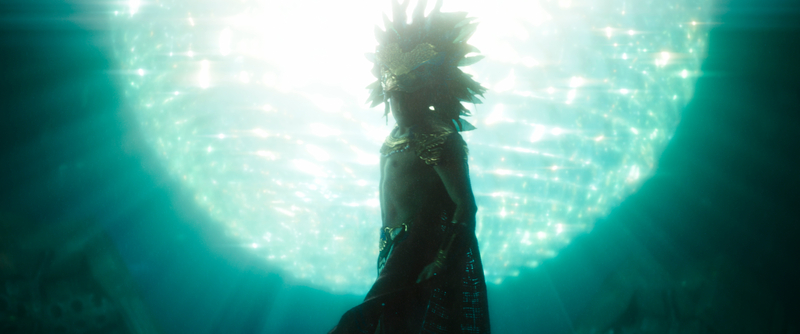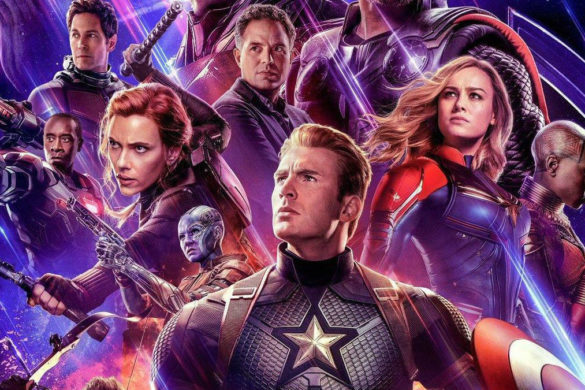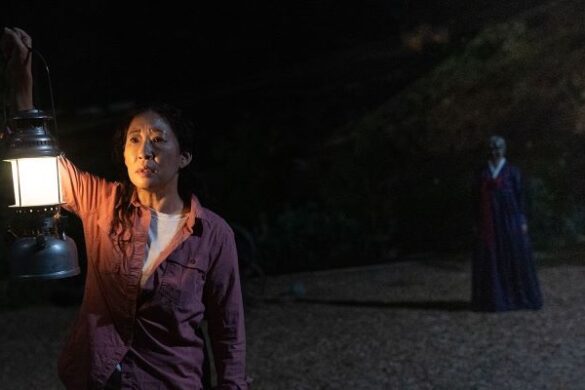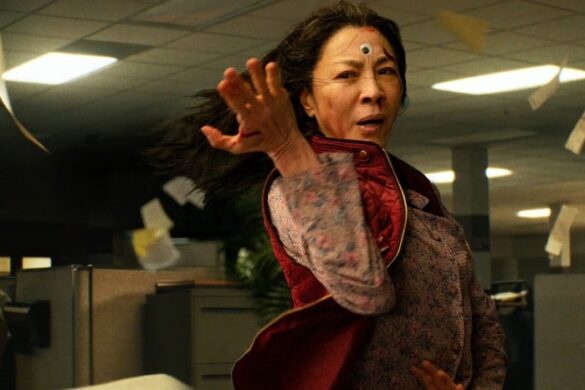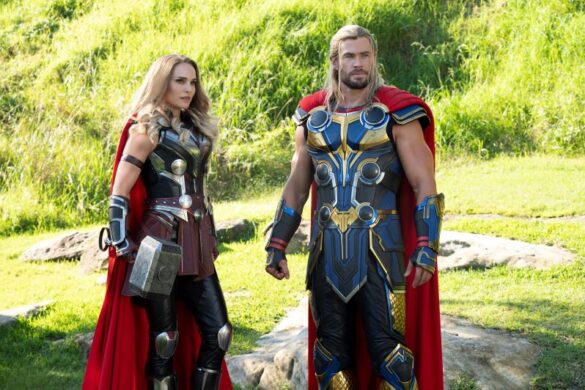“Black Panther: Wakanda Forever” Cast and Crew Talk
Representation and Honoring the Indigenous History
One of the beautiful things about a sequel like “Black Panther: Wakanda Forever” is that we get to see how its expansion allows us to see more of the MCU. Not only does this mean adding more heroes but seeing more diversity in those heroes. The diversity that would allow communities to see themselves in the characters on screen and their culture becomes a part of cinematic superhero mythology. And that’s clear in the introduction of Namor (Tenoch Huerta) and the kingdom of Talokan.
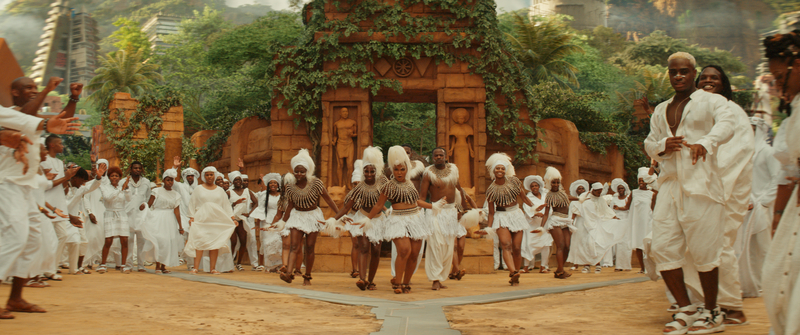
In “Black Panther: Wakanda Forever,” after the sudden death of their noble king T’Challa (Chadwick Boseman), the nation of Wakanda is left to defend itself from forces that demand access to Vibranium resources. But as they justify withholding those resources from governments that would weaponize it, a new threat emerges when the kingdom of Talokan prepares for war against the surface.
ThatsItLA had the chance to participate in the “Black Panther: Wakanda Forever” virtual press conference to talk about how representation plays into the sequel and what it meant to explore it in ways that go beyond just the imagery.
For Mabel Cadena, while preparing for the role of Namora was physically and mentally demanding, it was nothing compared to learning about the Mayan Spanish language. “I need to learn English Spanish Maya because it’s amazing we have an indigenous language for the first time in moving like this is to me I feel proud about this challenge was really hard to learn about the Maya language,” she said.
Cadena credits her dialect coach for reminding her about the importance of bringing the language into “Black Panther: Wakanda Forever” because it has never been done in a blockbuster sequel. “My coach is saved me all the time as a Mabel, ‘I want my people could be represented with dignity this language,'” she said about her coach’s demands and a reminder of the importance of this time. “So yes, we have faced a lot of challenges, but I’m very happy because yesterday, two days ago, when I watched the movie for the first time as a Mexican woman, Latin American Woman is like, ‘oh my god, this is amazing. This movie has a lot of diversity, a lot of colors, and a lot of languages. And I’m very proud to be part of something like this because it’s not just a superhero movie.”
More importantly, a sequel like “Black Panther: Wakanda Forever” does what the first, “Shang-Chi and the Legend of the Ten Rings,” and subsequent films will do for those who feel underrepresented. It gives marginalized communities a chance to be seen and opens the doors for them to be a part of something bigger. “I think the first Black Panther movie and, and all these characters, the legacy about that is, for me to have the opportunity for be part of this, this world,” Cadena said. “And maybe before, I never thought I could be a superhero. And now, thanks to Black Panther, thanks Ryan [Coogler], thanks Kevin Feige], Nate [Moore], Lupita [Nyong’o], Leticia [Wright], and Chadwick [Boseman], I have this new opportunity for belief in me, in the world. I have new expectations about my career. And I’m very happy for being here.”
Continuing on the cultural representation, Tenoch Huerta, who plays Namor, believes now is the perfect time to introduce the anti-hero and bring his culture into the MCU. “You know, in Latin America, especially Mexico, we deny our indigenous roots. You know, it’s just like a token sometimes, but it’s in general terms, we deny it is because it’s not about genes for us because almost everybody in Mexico has indigenous or African roots,” Huerta said. “It’s about culture, you know, so culturally, we are apart from indigenous roots. So embrace those roots and honor these two sources, main sources in Latin America, which is African and indigenous roots, are really important.”
Huerta says a film like “Black Panther: Wakanda Forever” could help indigenous cultures and marginalized communities embrace their history and identity and tell them they don’t need to change who they are to fit a standard. “I hope this helps the people to embrace who they are, who we are, you know, looking everybody at the mirror and saying what is in the mirror is okay,” he said. “They taught us to be ashamed of who we are. But it’s time to cut it off. And say, ‘yeah, this is who I am, and never had nothing wrong with me.’ You know, the mistake was in the eyes, who were looking at us, who were judging us. And most of the time, it was ourselves.
“So it’s time to change, you know, and now reconciliation of who we are, and with our ancestors, with all old grandparents, and embrace them,” Huerta added. “So yeah, this, you know, be part of this movement. And now it’s happening in a movie like this, you know, Black Panther, Ryan Coogler, and all these things. I think it’s the best portrayed is the best frame to talk about it.”
And representation also has a different form in “Black Panther: Wakanda Forever” because now it takes a look at the characters most affected by T’Challa’s passing, namely his sister Shuri (Wright), his mother Queen Ramonda (Angela Bassett), his general Okoye (Danai Gurira), and his beloved Nakia (Nyong’o). “We focused on the people who were appropriate. You know, I think it’s not about pushing women forward or holding men back. It’s about telling a story that is organic. And I think, sometimes, maybe from the outside, there’s a thought that there are agendas at play. It’s just telling good stories,” Moore said. “We are blessed with an amazing cast who re-sliced into these characters and makes you want to see what’s happening with Shuri, or what’s happening with Okoye, or what’s happening with Lupita, or what’s happening with Ramonda. To not highlight them would have been a disservice to the story.”
“And so I think the movies are better for it. Because if we would have had to wedge in some new male characters, just to have that voice that that would have seemed, that would have seemed sort of more performative than then just telling the story we told,” Moore added.
“Black Panther: Wakanda Forever” opens in theaters on November 11, 2022.

